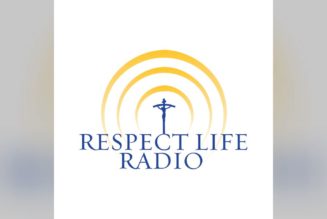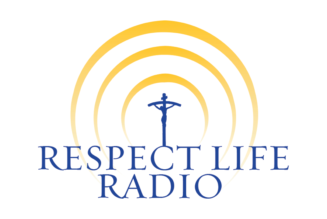By Fr. Jerry Pokorsky ( bio – articles – email ) | Sep 04, 2023
Years ago, the dermatologist removed a small but dangerous growth on my fair skin and placed me on an inspection schedule. He thought I had neglected his previous directives and needed his stricter attention.
The doctor did not praise me as a “member of the Melanoma Community.” He did not offer to “accompany me on my journey.” He rebuked me and insisted I get back on schedule, and I’m still around after several additional minor excisions. Good doctors teach us about our responsibilities as our “brother’s keeper.”
We warn—and need corrections—in justice and charity. Superiors, peers, and prophets approach the art of rebuking according to their state in life and the circumstances of their relationships. Righteous rebukes save souls.
Rebukes by Jesus
After Peter’s witness of faith, Jesus built His Church on the rock of Peter—with papal authority carrying the keys of the Kingdom. Immediately following the conferral, Peter attempts to dissuade Jesus from going up to Jerusalem to “suffer many things from the elders and chief priests and scribes, and be killed, and on the third day be raised.” Peter dares to rebuke the Person he recently identified as the Divine Messiah: “God forbid, Lord! This shall never happen to you.” The rebuke of Jesus is harsh: “Get behind me, Satan! You are a hindrance to me; for you are not on the side of God, but of men” (cf. Mt. 16:13-23).
We can’t blame Peter for fearing the Cross. Jesus also dreaded His upcoming Passion in the Garden of Gethsemane. But Peter places himself in charge of God’s will. Peter—and every successor who claims authority apart from Revelation—needs a firm rebuke to restore him on the road to heaven.
Rebukes by superiors in everyday life
Those in authority—fathers, mothers, doctors, police officers, the clergy, and everyday superiors—must make corrections more readily than peers. Lawful rebukes are rooted in charity and justice. Some rebukes are harsh. “Get out of the street!” “Don’t touch that stove!” “Stop your crying or I’ll give you something to cry about!” (Well, that was back in the day.) Sufficient evidence and prudence determine when a rebuke is necessary.
Lawful religious authorities—clergy and parents—also must make corrections in prudence to save souls.
Fraternal correction
In matters of fraternal correction, our responsibilities are difficult to determine. Actual or suspected misbehavior by friends, coworkers, and acquaintances is often none of our business. The “live and let live” rule is usually the best choice because we lack jurisdiction and information.
The famous “friends of Job” were busybodies—peers of Job with self-important opinions. They were quick to accuse the just man of iniquity without knowing the state of his soul or the nature of his ordeal. God created us to judge—but only when we have sufficient evidence for conclusions. Otherwise, “Judge not, and you will not be judged.” (Lk. 6:37)
Families and small communities often provide a toxic busybody climate. We become gossips, and gossip feeds on itself. Spreading hearsay ruins reputations and makes it difficult for a person to repent. Pious prayer networks and social media can become elaborate schemes to justify harmful gossip.
But circumstances, justice, and prudence may call us to risk our comfort in order to confront the evil behavior of others head-on. We may have an obligation to intervene with “fraternal correction” under certain conditions. Traditional Catholic morality asks: Is the behavior gravely sinful or otherwise dangerous? Do you have sufficient evidence? Are you in a position to make the correction in justice and charity? Will the correction cause serious bodily or spiritual harm? Are you likely to succeed, or will you make matters worse?
Among the unlearned lessons of former cardinal Theodore McCarrick’s moral debacle is the evil of institutional silence on the part of brother bishops. Many bishops knew of his malicious behavior and remained silent. The same silence meets prominent Churchmen today who openly attack the foundations of Catholic sexual morality. A shocking disregard for the salvation of souls!
But they have provided us with a clearinghouse phrase. There is no “Melanoma Community.” There is no “LGBTQ Community.” Don’t risk your soul relying on the moral guidance of anyone or any bureaucracy that disguises evil using LGBTQ nomenclature.
Prophetic rebukes
Most of us remain silent in the face of questionable and evil behavior by our superiors. We have lives to lead and mouths to feed. It’s dangerous to oppose the bad behavior of our superiors, as many of God’s prophets learned (cf. Mt. 23:29-31). Conflict avoidance may be unjust as evil festers in silence. So, God often outwits our unwillingness and sends us as His reluctant prophets, as Jeremiah realized: “You duped me, O LORD, and I let myself be duped; you were too strong for me, and you triumphed.” (Jer. 20:7)
Governed by justice, charity, prudence, and God’s grace—and a desire for the salvation of souls—conscience may require vulnerable subordinates to express disapproval of the manifest evil of their superiors. The task isn’t easy. Dysfunctional cultural conditions magnify the need for prayer, study, and habitually calling upon the Gifts of the Holy Spirit in our daily affairs.
God commands His appointed prophets:
So you, son of man, I have made a watchman for the house of Israel; whenever you hear a word from my mouth, you shall give them warning from me. If I say to the wicked, O wicked man, you shall surely die, and you do not speak to warn the wicked to turn from his way, that wicked man shall die in his iniquity, but his blood I will require at your hand. But if you warn the wicked to turn from his way, and he does not turn from his way; he shall die in his iniquity, but you will have saved your life. (Ez. 33:7-9)
Our salvation depends upon the inspired rebukes administered by superiors, peers, prophets—and courageous subordinates. Do we believe souls are worth saving?
Sound Off! CatholicCulture.org supporters weigh in.
All comments are moderated. To lighten our editing burden, only current donors are allowed to Sound Off. If you are a current donor, log in to see the comment form; otherwise please support our work, and Sound Off!

There are no comments yet for this item.









